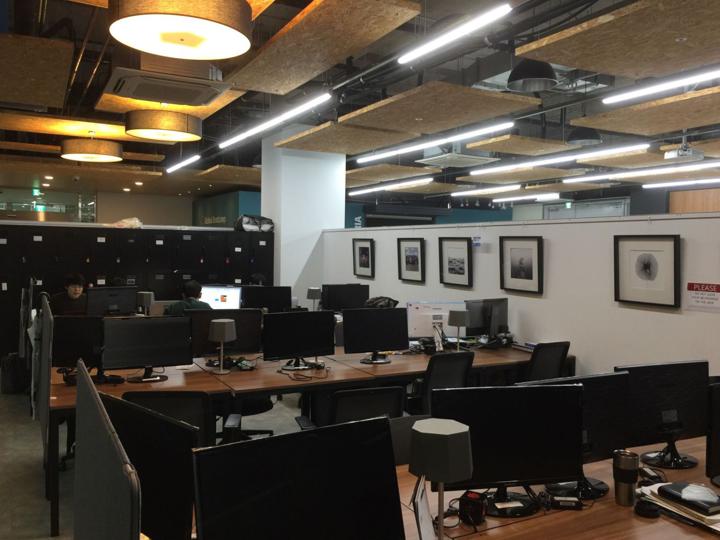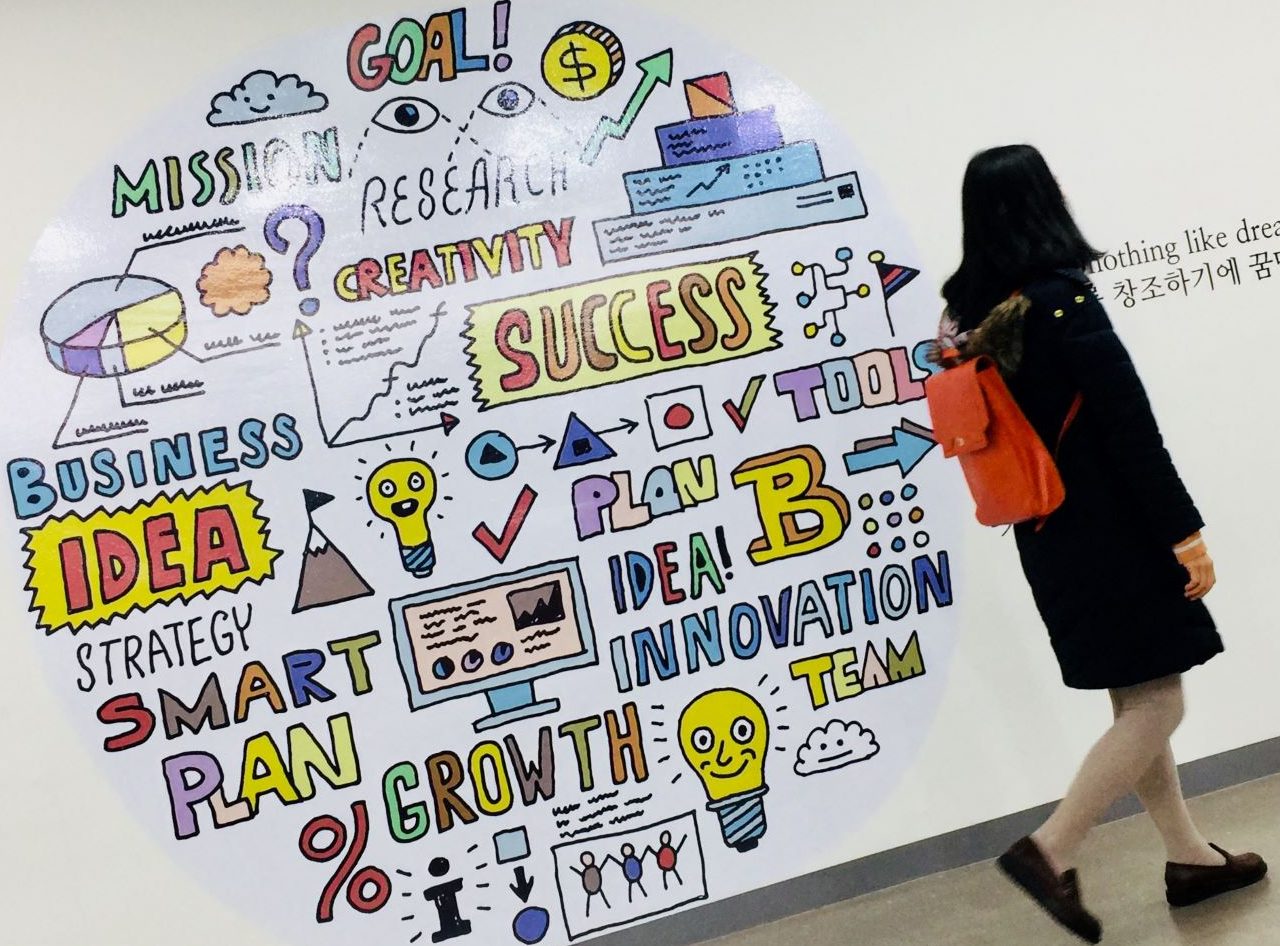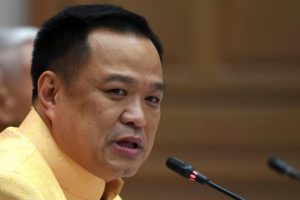This is the second part of a two-part series covering South Korea’s startup cluster, Pangyo Techno Valley. Read Part 1 here
The reason Pankaj Agarwal, CEO of Taghive, lives in Suwon is that he formerly worked there with Samsung, which founded its electronics arm in the city in 1969. Suwon, south of Pangyo, now hosts a former chip fab converted into a vast R&D center, heavily manned by expatriates, and is central to a range of satellite Samsung offices and plants.
The conglomerate’s in-house tech incubator Samsung C-Lab is the body that supplied Agarwal with his start-up capital. While some have accused large companies that incubate small companies as foxes guarding hen houses, Agarwal’s experience has been positive.
After arriving in South Korea in 2004, the Indian national was chosen to do a master’s program at the elite Seoul National University, then an MBA at Harvard, both sponsored by Samsung. He subsequently became an advisor to the CTO. When Agarwal advised the company to create an internet-of-things device for children, he was encouraged to first create a small team within Samsung, then spin it off. Samsung C-Lab invested the seed money.
Argawal values Taghive at approximately US$10 million. Pangyo’s proximity to Samsung executives in Seoul and Suwon is handy and Samsung has a seat on his board and he receives consulting from the company.
Lee Jung-won’s chip security/solution firm ICTC, which employs 72 staff – including a group of in-house hackers who have shifted from poachers to gamekeepers – boasts a broad spectrum of investors.
They include local VCs, a matching government fund and Korean banks. Like Agarwal, he also has big-boy backing in Hyundai Motor. ICTK is working on secure solutions for the sensors of autonomous vehicles – where a hacked system could be fatal – for the auto giant, which has representation on his board.
Recently established cloud games optimizer startup Smile Shark’s funding comes from Lee – based on a proximate, personal relationship.
“I did not expect to co-found a company with him,” said Lee of Smile Shark’s founder, Chang Jin-hwan. “But we are all in Pangyo!”

Pangyo open-plan office spaces are a far cry from the massed ranks of gray partitions in most Korean firms. Photo: Asia Times/Andrew Salmon
Financial niggles
Still, Pangyo is becoming a victim of its own success. The speculation that drove Gangnam rents skyward has spilled south.
“We have no complaints [about Pangyo] – just rents. They are huge, and they are going up,” said Lee. “If a company has its own building it is good, but if you have to lease . in 2014, [the local government] gave free rents for a couple of months, but now .”
A larger financial problem is a shortage of venture finance. In that regard, neither Pangyo – nor Korea – holds a candle to Silicon Valley or the United States.
“If I call someone in Silicon Valley, I can get a million dollars, but here, nothing happens on the phone and even if you meet, the risk appetite is not here,” said Agarwal. “You spend too much time pitching to investors. You don’t waste that time in Silicon Valley.”
“In the US you have enough capital, and you have exit players who come back to invest,” agreed Lee. “In the US, the big players are risk players . here, private money is very conservative.”
Nathan Millard, a British PR executive who specializes in startups, notes that while Korean VCs are plentiful – indeed, in Gangnam, venture capitalists are a dime a dozen – the sums they can offer are, generally, in the sub-$20 million range. “If you want $50 million, $100 million or half a billion, you need someone to connect you to Wall Street,” he said.
While Korea boasts an impressive national flock of 10 unicorns, only one grew as a result of local capital, Millard said.
Overseas players have taken note.
“Eighty percent of Pangyo is tech companies, and they generated about $80 billion in 2018,” Lee Eun-se, managing director of startup accelerator Techstars Korea, told Asia Times. “It is not only a smaller version of Silicon Valley, it is liquid in its potential.”
Lee opened Colorado-based Techstars’ Korean office in Pangyo in January. Why Pangyo? “We want to be hands-on with the companies we fall in love with,” he said. He is looking to support 10 startups, and is eying firms in enterprise software, human-digital interfaces and frontier technologies.
Meanwhile, Seoul leads the financial charge into startups.
Government wades in
Korea has long benefitted from top-down economic management. Its first industrial revolution in the 1960s grew out of Seoul’s plans to create a national and industrial infrastructure via favored companies. That strategy birthed giants including Samsung, Hyundai and LG.
The second industrial revolution of the 1990s blossomed after Seoul laid a world-class digital backbone of broadband internet and mobile telecoms. That engendered portals Naver and Daum, gaming firms NCSoft and Nexon and messenger app Kakao.
This background – and the need for economic diversification in a top-heavy economy – may explain plentiful government support.
“We have $3 million from the Korea Venture Investment Corp – it is a mother fund, like the Israeli case,” said Lee. “The government has to promote ventures – it is risky to put everything into Samsung and Hyundai.”
“There is much more government support for Korean startups than anywhere else I know of – even Israel or Singapore — in terms of volume of funding,” added Millard. He cited the Tech Incubation Program Startup, or TIPS, which is 100% government-run, which will match a VC’s investment by a ratio of up to 1:9 – so if a VC invested KRW100 million, TIPs would invest KRW900 million [$754,000].”
Park Kyeong-seon, an official with the government-run Korea Institute for Startup and Entrepreneurship Development, or KISED, told Asia Times that startups are eligible for three phases of funding, each worth KRW100,000. Last year, the Ministry for Startups and SMEs disbursed a budget of four trillion won, she said.
The government also operates physical facilities. Pangyo’s Global Startup Campus – a dedicated all-under-one-roof space for startups – is run by the National IT Promotion Agency.
Even Samsung-funded Argawal appreciates Seoul’s programs. “This is a government-leased space, it is subsidized. We pay 50%,” he said of his office. “There is a café, a gym and downstairs we have 3D printers.”
Too much of a good thing?
Given the difficulty startups previously encountered in Korea’s staid finance sector, the trend looks positive. However, a source told Asia Times that too many bodies support startups without a control tower: multiple ministries, local governments, big companies (that have been strong-armed into the space by government) and quasi-governmentals all have skin in a game, but no coordination.
And some say Seoul throws too much cash and too little knowledge at ventures.
“There are a lot of companies in Pangyo without a lot of supportive infrastructure. It is not a mature ecosystem,” said American Ogan Gurel, a former Pangyo resident and current professor at Daegu Institute of Science and Technology. “It lacks the diversification that defines Silicon Valley – marketing, professional services, that sort of thing.”
The co-founder of a Seoul-based industrial design boutique of international repute contrasted the government’s profligacy toward startups with its parsimony toward extant SMEs.
“Kids with stupid ideas” easily access government funds she said – funds that are wasted not just due to the customary high failure rate of startups, but also due to the absence of business support. Meanwhile, established SMEs have no such spigot to tap. “We could use that money to employ more staff!” she complained.
Formerly a mentor in a government-run program for startups, she exited in disgust.
























